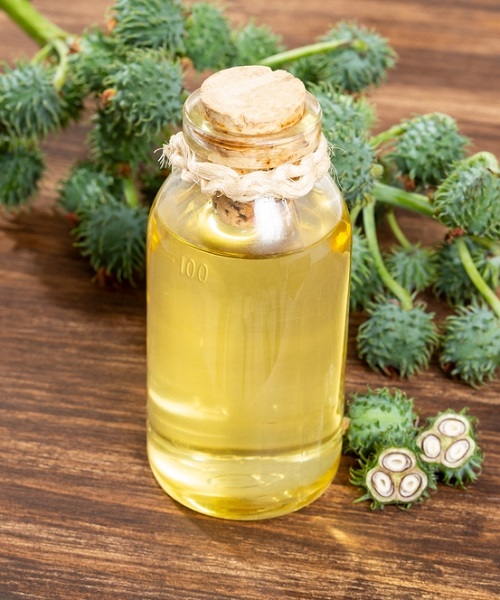Deciding between Castor Oil vs Coconut Oil for Hair can be a puzzling dilemma if you don’t know how exactly they work!
If you are looking for natural solutions to your wellness, castor oil vs coconut oil for hair might throw you in a loop. That’s exactly where our comparative guide has your back!
Confused between Argan oil and Rosemary oil?
Is Oiling Good for Hair?
Not only is oiling good for your hair, but doing so regularly can do wonders for its health—a fact that’s both rooted in tradition and backed by modern research. This age-old practice nourishes the scalp and strengthens hair follicles, playing a key role in maintaining overall hair wellness.
Scientific studies have confirmed that proper hair oiling can protect against protein loss—essential for nourishing chemically treated or dyed hair. Oils don’t just sit on your hair; they actively penetrate the hair shaft. This action reduces the amount of water the hair absorbs, leading to less swelling and breakage.
Plus, massaging oil into your scalp boosts blood circulation, which is like giving a green light to healthy hair growth. It’s crucial, though, to choose the right oil for your hair type and to avoid overdoing it—too much oil can attract dirt and lead to build-up.
In short, making oiling a part of your hair care routine is a smart move for anyone looking to nurture their hair and keep it looking strong and shiny.
Castor Vs. Coconut Oil for Hair
1. Moisturizing Properties
Castor oil is a heavyweight champion in the moisturizing category, be it your skin or hair. Its viscous nature makes it a powerhouse for hydrating and softening, particularly if you are battling brittle, dry, or damaged hair.
According to a study published in the International Journal of Trichology, its unique fatty acid profile deeply conditions the hair, leaving you with soft, manageable locks.
On the flip side, coconut oil is the agile contender. Its lightweight, non-greasy formula penetrates the hair shaft swiftly, ensuring quick and effective moisturization. This can be a game-changer for oily and combination scalp types, leaving strands silkier and more manageable.
2. Stimulating Hair Growth
As per studies, lotions with 35% castor oil concentration applied to rabbits resulted in significant hair regrowth, with over 50% of the cases showing longer, thicker hair in treated areas. Although this study focuses on animals, ricinoleic acid is widely touted for its ability to stimulate hair follicles, potentially leading to thicker, more luscious hair.
While not a direct stimulant, coconut oil’s nutrient-rich composition supports overall hair health, reducing breakage and enhancing the appearance of fuller hair.
3. Treatment for Dandruff and Scalp Issues
The ricinoleic acid in castor oil combats the bacteria and fungi that often cause dandruff, while its soothing properties alleviate scalp irritation and redness. Plus, its ability to deeply moisturize the scalp further aids in reducing flakiness and dryness, promoting a healthier, dandruff-free scalp environment.
Exceptional for its moisturizing and antimicrobial qualities, coconut oil is highly effective against dandruff. Its lauric acid content helps lower yeast levels on the scalp, addressing a common root cause of dandruff.
Additionally, coconut oil’s deep penetration and anti-inflammatory nature soothe scalp irritation and maintain scalp hydration.
4. Protein and Nutrient Content
While rich in fatty acids, castor oil may lack the protein content found in some other oils. It’s more about conditioning and moisturizing the hair and scalp, making it ideal for those looking to combat dryness and add that glossy sheen to their hair rather than repairing protein damage.
A study in the Journal of Cosmetic Science found that coconut oil could significantly reduce protein loss in hair, making it a healthy food for damaged or chemically treated hair. However, this also makes it unfit for those with low-porosity hair types.
5. Ease of Application and Scalp Absorption
Due to its thick consistency, castor oil may be more challenging to apply and require dilution. To make the application process smoother, you can mix it with lighter oils like almond or jojoba oil. This dilution helps in spreading it evenly without losing the benefits.
Thanks to its lighter molecular structure, coconut oil is readily absorbed by the scalp. This quick absorption means it doesn’t leave as much residue as castor oil, making it a favorite for overnight treatments.
You can apply it before bed and wash it out in the morning without worrying about heavy, greasy hair.
Conclusion
In the grand scheme of things, both castor and coconut oil have their own superhero powers for hair care. Castor oil is your go-to for hydration and shine, making it a favorite for those looking to add moisture and gloss. Coconut oil, on the other hand, is the warrior against protein loss, a savior for damaged, protein-hungry hair.
Choosing the right oil depends on understanding your hair’s specific needs and how these oils can meet them. Both oils have their own roles to play in the complex world of hair health, and knowing these nuances can help you make the best choice for your hair’s unique characteristics.



